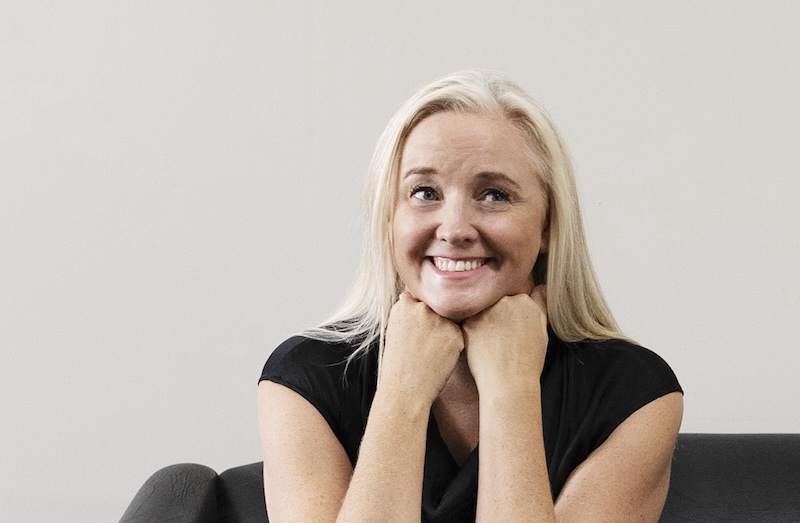Amnesty International UK calls illegal migration bill ‘shocking new low for government’
Human rights campaigners have condemned the illegal migration bill.
This is from Amnesty International UK’s refugee and migrant rights director, Steve Valdez-Symonds.
Attempting to disqualify people’s asylum claims en masse regardless of the strength of their case is a shocking new low for the government.
There is nothing fair, humane or even practical in this plan, and it’s frankly chilling to see ministers trying to remove human rights protections for group of people whom they’ve chosen to scapegoat for their own failures …
Ministers need to focus on the real issue – which is the urgent need to fairly and efficiently decide asylum claims while urgently introducing accessible schemes, so people seeking asylum do not have to rely on people smugglers and dangerous journeys.
And this is from Yasmine Ahmed, the UK director at Human Rights Watch.
This proposal is illegal, unworkable, and utterly inhumane. The UK government is sending a clear message that it is happy to play fast and loose with our international commitments, ram through flawed legislation, and risk stoking fear and hatred in our communities, simply to score political points.
Key events
As the BBC’s Dominic Casciani reports, in a letter to MPs Suella Braverman has said the the section 19 (1) (b) statement on the face of the bill (see 4.12pm) means there is a more than 50% chance that the bill is not compliant with the Human Rights Act. But she also said she was confident the bill was compatible with international law.
Home Secretary’s letter to all MPs admits that her illegal immigration bill is *more likely to fail than withstand legal challenge*. (That’s the maths behind ‘more than 50% chance’). Screengrab of relevant bit: pic.twitter.com/0TKQ3n8l4e
— Dominic Casciani (@BBCDomC) March 7, 2023
Jonathan Jones, a former head of the government’s legal department, argues that what Braverman is saying does not make sense.
Ministers are entitled to take legal risks. And s19(1)(b) is there for a reason. But I’m not sure how you can think you’re more likely than not to lose if challenged under the HRA *AND* be “confident” that what you’re doing is compatible with the ECHR
— Jonathan Jones (@SirJJKC) March 7, 2023
Jones resigned in September 2020 over a government plan to pass legislation that would break international law. The attorney general at the time who approved it was Suella Braverman.
Tory 1922 Committee chair Graham Brady to stand down as MP at next election
Peter Walker
Sir Graham Brady, whose role as chair of the Conservative party’s 1922 Committee saw him usher three prime ministers out of Downing Street in four years, is to step down as an MP at the next election.
Arguably the most powerful backbencher of his political generation, Brady released a statement to his local newspaper saying it was time to “bring this fascinating and fulfilling chapter of my life to a close”.
Brady, the MP for Altrincham and Sale West in Greater Manchester since the constituency was created in 1997, has never held ministerial office but has chaired the committee that represents Tory backbenchers since 2010.
During that time he observed four prime ministerial departures – David Cameron, Theresa May, Boris Johnson and Liz Truss – and subsequent elections for a successor, and in three of the cases played a pivotal role in their resignations.
As chair of the 1922 Committee, Brady is the custodian of any Tory MPs’ letters of no confidence in the prime minister, and if 15% of their contingent submit one, a confidence vote is held.
As the letters mounted against the four prime ministers, Brady would be pursued around Westminster by TV crews asking for a running tally, which he would never divulge, responding only with inscrutable bonhomie.
In his statement, Brady said colleagues had “given me the unique opportunity of chairing the 1922 Committee for longer than anyone else in its 100-year history”, and that he would remain in the role until the end of the parliament if they wanted him to. He said:
I will continue to do everything I can to support the Conservative cause and Rishi Sunak. He is bringing both stability and vision as prime minister.
I have decided to bring this fascinating and fulfilling chapter of my life to a close while I am young enough to pursue other opportunities and interests, so I will not be standing at the next election.
One aspect of his decision to stand down could be the shrinking majority in his always slightly marginal seat, now less than half of the 13,000 margin at its peak in 2015.

Charities that work with refugees have also denounced the illegal migration bill.
This is from Katy Chakrabortty, head of policy and advocacy at Oxfam GB.
This bill is yet another example of the UK turning its back on some of the world’s most vulnerable people. Seeking asylum is not a crime, and those forced to flee their homes deserve compassion, dignity and the right to fair treatment. Conflict and persecution do not exist only within the confines of countries that the UK government deems worthy of a visa scheme.
This is from Laura Kyrke-Smith, executive director of the International Rescue Committee UK.
The bill will not stop small boats crossing the Channel. It will only add to the trauma of the people in these boats, while further damaging Britain’s global reputation for fairness and compassion.
And this is from Emma Stevenson, deputy CEO of Choose Love.
Today’s proposed bill reaches new depths of cruelty towards asylum seekers. Displaced people are not criminals, but this bill is punitive in nature. It shirks the European Convention on Human Rights and avoids the UK’s international responsibilities.
Whatever the fate of this Bill, serious damage has already been done. The government today said any opposition to these plans would amount to a ‘betrayal of Britain’. [See 11.51am.] History tells us this demonisation of the vulnerable can lead to catastrophic results.
Rishi Sunak has been visiting the Maritime Rescue Coordination Centre in Dover to speak to staff dealing with small boats. Here are some of the pictures.





Green party says it would have safe legal routes for anyone wanting to claim asylum in UK
The Green party says it wants safe legal routes for anyone wanting to make an asylum claim in the UK. This is what Adrian Ramsay, the party’s co-leader, said in a statement about the illegal migration bill.
This is the latest attempt by the Tories to stop desperate people finding sanctuary. Last year three-quarters of all asylum claims were granted. Despite this, the government seems determined to clamp down on those fleeing conflict, persecution or extreme poverty in a host of countries by failing to offer legal routes to the UK. This will force people to continue taking their chances arriving in small boats ….
The Green party is the only party taking a strong stand against this cruel legislation and saying proudly that refugees are welcome. We want to see safe legal routes for anyone wanting to claim asylum. That’s the way to stop small boats making perilous journeys across the channel and break the criminal gangs involved in people smuggling.
In the Commons Suella Braverman repeatedly accused Labour of not wanting to put a limit on the number of people it would allow to enter through safe routes for asylum seekers. She said:
The shadow home secretary talks about safe and legal routes; I wonder what number Labour would cap that at. Would it be 500,000? A million? Five million? [Yvette Cooper] should be honest with the house and with the British people: what she really means is unlimited safe and legal routes – open borders by the back door.
But Labour is not saying it would have unlimited safe routes. It says it would change the system to have “a clearer process for refugees with family connections in the UK to be considered for resettlement”.

Lisa O’Carroll
Europe minister Leo Docherty has told a Lords committee the government is considering expanding the Turing programme, the UK’s post-Brexit overseas study scheme.
Asked if the government would consider linking up with Erasmus Plus, the EU scheme which the UK left when Brexit came into force told the House of Lords European affairs committee, Docherty told peers that the government that it was among the moves that was “under consideration”.
He told peers on the European affairs committee he was “delighted” with the “success” of Turing, in which 41,000 students participated in 2021/2022.
But he conceded that second school visits to the UK from EU countries had “dried up” after the government stopped accepting ID cards due to the risk of fraud.
Here are comments from two left-leaning thinktanks criticising the illegal migration bill.
This is from Harvey Redgrave, the lead home affairs expert at the Tony Blair Institute, and a former deputy head of the strategy unit at No 10.
The illegal migration bill is a soundbite dressed up as a solution and will ultimately join the Rwanda policy on the scrapheap.
The headline pledge – that nobody coming over the Channel will be able to claim asylum – will inevitably be broken.
Without return agreements in place, any new duty on the home secretary is meaningless.
And the continued lack of any focus on enforcement against smuggling gangs or a legal route to claiming asylum will keep illegal migration high while locking out people with genuine claims.
As TBI has previously said, if the government is serious about preventing illegal migration then they should focus on clearing the backlog, increasing the number of returns, introducing a system of digital identity verification and opening up safe and viable routes for asylum claims.
And this is from Marley Morris, associate director for migration, trade and communities at the IPPR.
This bill is both unethical and impractical. As with last year’s Nationality and Border Act, this bill will simply add to the distress of Afghans, Syrians, Iranians and others seeking asylum in the UK, without deterring people from making the journey.
The government can pass law after law, but without a deal with France and new safe and legal routes for people seeking asylum, people will continue to be forced to make the perilous journey across the Channel.
Previous IPPR research into those entering the UK via Channel crossings found that around two-thirds would have a well-founded asylum claim if they were properly considered.
The full text of the illegal migration bill has been published. It’s here.
Here is the section 19 (1) (b) statement on the face of the bill – the admission that it might not fully comply with the European convention on human rights.

And here are the explanatory notes to the bill.
Amnesty International UK calls illegal migration bill ‘shocking new low for government’
Human rights campaigners have condemned the illegal migration bill.
This is from Amnesty International UK’s refugee and migrant rights director, Steve Valdez-Symonds.
Attempting to disqualify people’s asylum claims en masse regardless of the strength of their case is a shocking new low for the government.
There is nothing fair, humane or even practical in this plan, and it’s frankly chilling to see ministers trying to remove human rights protections for group of people whom they’ve chosen to scapegoat for their own failures …
Ministers need to focus on the real issue – which is the urgent need to fairly and efficiently decide asylum claims while urgently introducing accessible schemes, so people seeking asylum do not have to rely on people smugglers and dangerous journeys.
And this is from Yasmine Ahmed, the UK director at Human Rights Watch.
This proposal is illegal, unworkable, and utterly inhumane. The UK government is sending a clear message that it is happy to play fast and loose with our international commitments, ram through flawed legislation, and risk stoking fear and hatred in our communities, simply to score political points.
One of the measures in the illegal migration bill will prevent asylum seekers claiming to be a victim of modern slavery as a means of preventing or delaying their removal.
To coincide with the announcement of the bill, the Home Office has published research showing how the number of asylum seekers being referred to the national referral mechanism (NRM) as potential victims of modern slavery has also increased dramatically in recent years. Here is a chart from the document.

The report says 92% of people referred to the NRM got a positive “reasonable grounds” decision, meaning that they were protected from immediate removal and released from detention pending a full decision being taken.
The report also says that most of the people covered by its analysis have yet to receive a final decision.

Libby Brooks
Away from Westminster, the SNP leadership candidate – and current health secretary – Humza Yousaf has been out campaigning in a frosty Glasgow today with university students, pledging to keep young people “at the heart of the yes movement and that he will always reflect their progressive values”.
This came as all three candidates prepare for their first televised debate on STV this evening and many seasoned activists describe the contest as an existential moment for the party, with Yousaf, his closest rival, finance minister Kate Forbes, and outlier Ash Regan offering competing visions for the future of the SNP and the wider yes movement.
Yousaf was stressing his progressive credentials this morning, unsurprisingly given the warnings that youth and LGBT members will leave the party if the socially conservative Forbes wins. Challenged on his position as continuity candidate, and Sturgeon’s preferred successor, he insisted he is “very much my own man” and underlined that the party’s progressive agenda had won successive elections.
Yousaf was joined by the culture minister, Angus Robertson, who was himself considered likely to stand until he ruled himself out of the contest saying he wanted to be “first dad” for his young children.
Robertson adds his name to a lengthy list of endorsements for Yousaf, but party insiders question have much weight these will carry with the wider membership, a largely unknown quantity.

Nigel Farage says illegal migration bill won’t work unless UK leaves European court of human rights
As Ukip leader, Nigel Farage made himself the most successful non-MP British politician of the postwar era by identifying a cause popular with minority fringe in the Conservative party (Brexit) and making it mainstream. In a video message on YouTube, he says Rishi Sunak’s illegal migration bill won’t work because the UK remains a member of the European court of human rights. He says the UK needs to leave, to “complete Brexit”.
Suella Braverman’s statement on illegal migration bill – snap verdict
You can read the full text of Suella Braverman’s statement to MPs here. The contents of the bill had been briefed in detail to some papers in advance, and there was no great surprise in what she had to say. (Most of the briefing proved accurate, but there was no mention of the “Strasbourg brake”, the phrase spun to the Sun as a description of the measures in the bill to deal with European court of human rights injunctions under rule 39, doubtless by someone inspired by the “Stormont brake”).
The key question is whether the measures in the bill will prove lawful. Nothing Braverman said helped settle the matter either way. In a rare moment of self-deprecation, she said “some of the nation’s finest legal minds” (by implication – not her) were on the case.
Often what matters most in a Commons statement is how the backbenchers respond, and in this respect the exchanges were revealing. Opposition MPs were outraged (as you would expect), but Yvette Cooper, the shadow home secretary, focused on attacking the practicality of the plans, not their morality.
Much more interesting was the response from Conservative MPs. None of them spoke against the plans. But there was a notable absence from the one nation types, who may feel queasy about this.
And while other Tories were supportive, there were repeated suggestions that the bill on its own won’t work without a commitment to withdraw from the European convention on human rights. Mark Francois, one of the most hardline Brexiters in the last parliament, was the most outspoken (see 1.25pm), but there were other voices too. Today’s exchanges sounded like the opening skirmishes in a Tory war over whether the UK should leave another international body with “European” in its title.
The statement is now over. Suella Braverman was taking questions for one hour and 50 minutes.
Patrick Grady (SNP) asks Braverman if she has ever met anyone who came to the UK on a small boat to asks about their hopes for the future, or looked them in the eye to say they are not welcome.
Braverman ignores the question and says the bill provides a pragmatic solution.
Tom Hunt (Con) claims Keir Starmer once said there was a “racist undercurrent” under UK asylum law.
Braverman says Labour policy on immigration involves “total disregard for what the British people want”.
Braverman repeats her claim that Labour is in favour of “open borders”. She says Labour would ensure “illegal migration continues through the back door”.
Carol Monaghan (SNP) says in her constituency businesses cannot find employees, but asylum seekers cannot work. When will the home secretary get realistic?
Braverman says people coming to the UK through some schemes can work.





















Discussion about this post